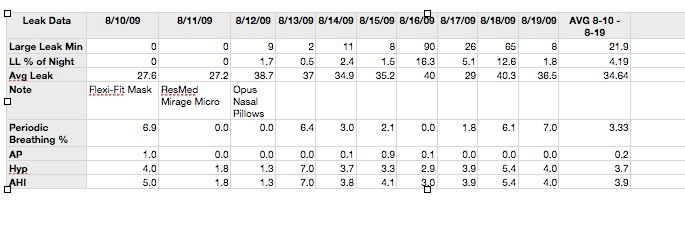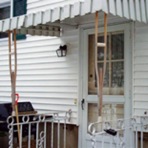Thanks -SWS, and thanks for the Kaiser suggestion old64mb.
Let me "esplain" about this Kaiser thing. Our subset of Kaiser has one sleep Dr. recently recruited into the system from outside practice. I asked the DME rep, who works with all 5 local sleep Drs, his assessment was that the Kaiser Dr. was good. If I leave this Kaiser operation, I can probably access a wider pool in San Francisco. However, I will be dealing with the local RTs for as long as I'm able to hobble in the door. My preference is to be an "interesting" patient and get as much local help as I can, including the Dr, if possible.
That's why my questions. I'm trying to get armed with enough knowledge so that we can discuss my case. If I exhaust this route of being interesting, then I will have little alternative but to comb the org chart looking for a compatible, competent sleep Dr. no matter the commute. The other reasons for the questions is to be informed enough about my problems that I'm not totally flying blind. So far, short-term memory being what it is, my master plan is to have SWS' comments tattooed on my wrists - this would be a good one:
In the case of CompSAS, periodic breathing's respiratory overshoot and undershoot are dysfunctionally interrelated with central apneas and/or central hypopneas. Periodic breathing's preliminary hyperventilation stage is believed to sufficiently skew dynamic blood-gas values, causing those interrelated central apneas and/or hypopneas to occur.
, slide my sleeves up enough and read this under the table, reciting as if I knew what I was saying.
I feel that I have been withholding data, but I haven't. Based on SWS' useful comments, I copied some numbers into a spreadsheet so that comparisons might be made, trends examined, bailout funds obtained, etc. Here's the little bit I've typed in so far:

The Opus Nasal Pillows were used from the 12th forward. Thanks to SWS getting me to look at the leak #s, I'll be back to hurting the bridge of my nose with a nasal mask tonight. This additional data may help your thinking. At the very least, there's a lot more data than a one day snapshot. Old saying "You can't see the whole sky through a bamboo tube." Let me know if I should add some more of the data from the detailed reports.
Again, if you meet those two criteria, Respironics would have you sleeping in the PSG with your clinicians experimentally turning off auto backup rate. Subsequent recommended titration steps would have your clinicians methodically adjusting I time looking to improve your residual PB. Short of having a crystal ball, your doctor has absolutely no way of knowing whether that 7% residual PB score can or cannot be improved by following the manufacturer's recommended PSG procedures.
As you see, PB scores vary quite a bit. Three nights of 0, the 7% night being the highest. I picked that date's data just because it was pretty recent, thinking I was somewhat used to the air blowing up my nose. Didn't even realize the PB# was high. (Thought the "E" on the gague stood for Excellent!)
Kaiser seems to dance to its own tune. The original sleep study was done at home. One clear advantage to this is that you sleep in familiar surroundings, and they get data from a pretty large sample, assuming you sleep enough hours. Titration then happens when you get a data-capable CPAP, take it home, and sleep with it for a week. Upon your return to the sleep dept. they download the data, set your prescription, and you are on your way. Since my titration was with the wrong machine, straight CPAP, my AHI went from a sleep study # of 35 to only 30.
How the sleep Dr knew enough to set my prescription to IPAP Max 20, Min 5, EPAP 5, Backup Rate: Auto, I don't know. The Backup Rate would seem to take care of itself if you thought the Respironics algorithm was correct. The pressures are from where, exquisite clinical judgement, perhaps?
SWS, you have given me a lot to chew on. I'll be re-reading your posts. Many thanks for exercising some grey cells on my behalf. Go directly to GO and collect $200 in crisp Monopoly money, or a crisp martini. I'm raising a glass to you tonight!
Life is a process. I'l keep you posted,
Mr Capers















